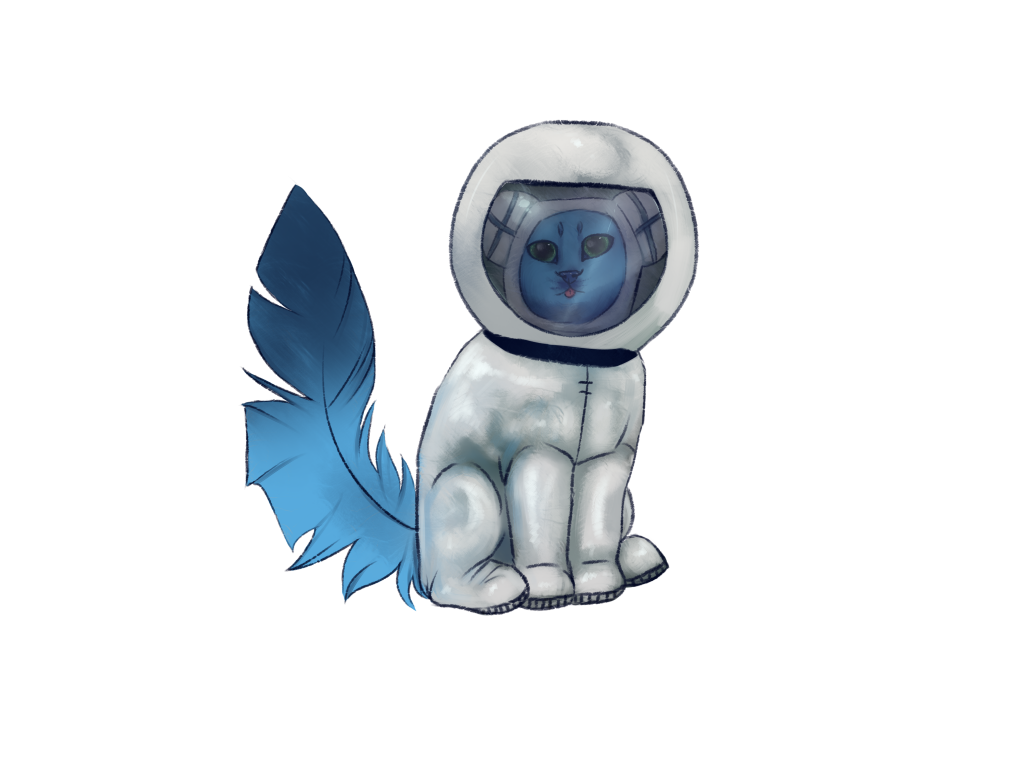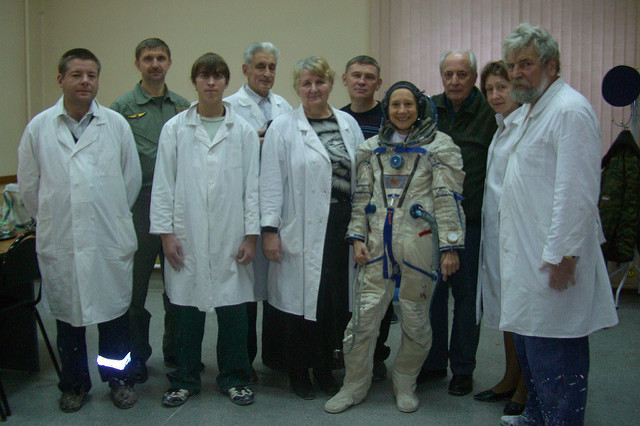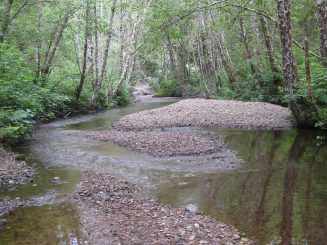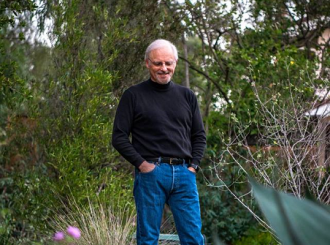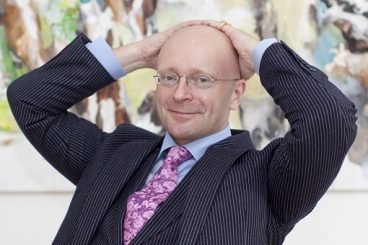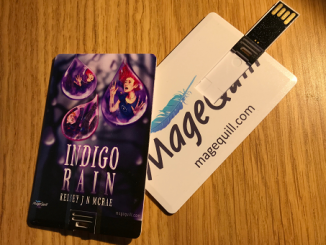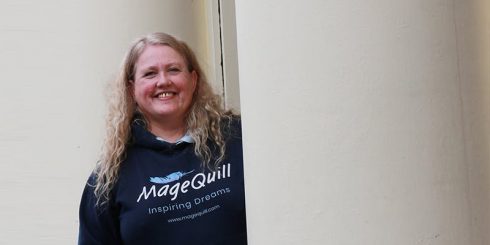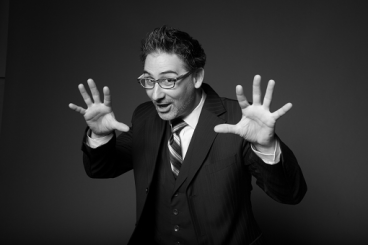Conversations with a Cosmonaut
by Swara Shukla · Published · Updated
Illustration by Josephine Molyneux-child
I went into this interview with Esther Dyson with the sole thought of speaking to a trained cosmonaut from the Yuri Gagarin Cosmonaut Training Center. I expected (and hoped) to get exciting stories about space stuff (which I did), perhaps having some excitable discussions about wanting to be an astronaut in school when I was like 12 or something, because I was in the astronomy club and loved telescopes. I kept recalling how we had hoped at the time to get to meet an astronaut – there were several inspiring women in space from India – and never did.
To cut my ramblings short – this felt like the fulfillment of a latent, forgotten dream, and a (surprisingly strong) reminder of how excited astronauts and space can get me.
To my even greater surprise, I came out being inspired and touched not by extraordinary, larger-than-life stories of space-adventures, but of hidden moments behind the grandeur, the person behind the persona that I initially saw while taking up this interview; of musings on life and some unexpectedly stirring thoughts on the fear of death.
I got to know Esther – who has travelled to nearly 90 countries – as someone with an unrelenting passion to understand human experiences, and lots of stories to tell. Above all, I got to know her as someone who has years of professional and personal accomplishments behind her, and still sees herself as a learner and novice.
Now that I have got The Cat scrolling through Esther’s photographic landscape on Flickr (which in themselves make for some pretty captivating stories, honestly), I am going to take over (again; I am starting to like this interview thing) and learn how to do life from a cosmonaut!
I like to tell people, “I can reduce my chance of dying from breast cancer by going into space. If I’m 25% more likely to die from going into space, then I must be 25% less likely to die of breast cancer, because I can die only once.”
I have NEVER known of or spoken to an astronaut before (you can’t hear it, but I assure you I am internally squealing) and I was used to thinking of space-travel and training in connotatively grander terms like Adventure and Courage and Life-changing experiences and risks. When I read your article for Fortune, what really intrigued me were the simpler, quirkier little anecdotes – you thinking of double mastectomies to clear your schedule, or all the challenges around your suit-fitting because the clothing was designed for “reasonably-sized Russian men” (I found that hilarious). At the risk of being a bit grandiloquent, it is like finding the ordinary in the extra-ordinary (just a sly compliment there at you too since I just called you extraordinary!) Looking back now at your journey as a cosmonaut, are there any more such smaller, relatively mundane moments that stand out for you?
One of the first stories, I think, comes from my father. My father was an astrophysicist. And most parents would just go “oh my god – darling!” At the age of 17, when I was in Morocco and I told him I wanted to do something like this, the reaction was “okay whatever you like darling, we wish you the best. We’re not going to come pick you up if you end up in jail but take care of yourself out there.” But when I decided to do this space training, I told him during dinner and my father jumped out of his chair; he was tremendously excited, because this was what he’d wanted to do ever since he was 6 years old – back when people weren’t going into space, He drew pictures of a rocket and people thought it was just science fiction. So, for me it wasn’t quite as strange as it might have been for your average person; it didn’t feel like science fiction, it felt quite natural.
From my training days, I am still friends with Cady Coleman, who was one of the astronauts training there. There was a guy there – I won’t use his name – he was an astronaut from the US. He had gone into space several times and didn’t really want to go again. His wife had cancer, I think. He did it out of a sense of duty and I found that really impressive.
The programme is not just a bunch of dudes going into space for fun; it’s a job, a mission and so much more. I ended up respecting these people. It’s one thing to go for two weeks – it’s fun, it’s an adventure. But for six months – you have family, you are leaving things behind, you might not come back. I mean people die every day, it’s not unique but this is not risk-free, and you are very conscious of that when you do the training. So that was very inspiring in a way.
Photo credits: Peter Diamandis; Licensing credits at Flickr.
What was it like feeling weightless for the very first time?
That I had actually done before the training. Part of the reason I wanted to go to space was to become weightless for so long that it became boring! Because the reality is, when you go weightless without being in orbit, it lasts fundamentally for half a minute. The reason you’re weightless is because you are falling inside an aircraft. And the reason you’re weightless in space is because you are continually falling inside an orbiting spacecraft that is both always falling and on the edge of escaping from earth. I wanted to be weightless for several days and completely overcome the air sickness. I wanted it to become boring, basically.
While reading about the challenges around your suit-fitting – I still find it so funny, probably because I am of a small frame myself (just a little short of 5 feet), so strong element of relatability there – I had a fleeting thought on how gendered these spaces were too. Were you the only woman in the training? In your wide-ranging portfolio as a scientist, all the other leadership and founding roles you have played, and in your extensive travels – have there been times, places, and cultures where you have experienced an added struggle to navigate a male-dominated space? Is being a “woman in science” a significant identifier for you as a professional?
Well, if anything it’s a “woman in tech.” I don’t think of myself as a woman, I think of myself as a person. I mean I’m not stupid: I know I’m a woman, I am also a Swiss-born American, but I don’t really think about that either.
I have two stories about this. First, a conference organiser once asked me to sit on a panel called “Women in Space.” I wrote back, politely saying, “I would love to, but do you have panels on Men in Banking?” They told me I made a good point, and then eventually changed the name of the panel to something like “Space Commerce.” There were four women panellists talking about space and it was great!
This other time I was in Japan at Forbes, and had asked this guy who worked for Hitachi about his software strategy. He just looked at me extremely puzzled and said, “I’m sorry, it’s so funny to hear a woman ask about software strategy”. I mean, imagine if you are just sitting around and a cat suddenly starts asking you about the role of government identity programmes or something. It was useless. I couldn’t get him to talk to me, he really wasn’t comfortable. I dealt with it, it was clearly nothing personal!
I’m interested in what I’m doing and try to focus on that; but yes, the reality is people see me as a woman doing whatever it is that I’m doing, and I get that. However, even though personally I do not focus on identifying as a woman, it does matter to girls to see a woman doing this and a woman doing that.
Also, since 1982, I have worked for myself, my own company. It’s a luxury that I didn’t quite understand. Most people work in a company and whether or not they identify as a woman, they are competing with men for a job and the men treat them and think of them as women. You can’t get away from it; you are competing with men, as a woman. People put you into this category and then compete with you. I don’t see myself as a woman but other people do and you have to keep that in mind. I do not represent all women; I represent myself. But not everyone sees it that way.
If you are a foreign woman – you get a little bit of a pass in patriarchal societies; a “I couldn’t imagine my own daughter doing this but you are a foreigner so that’s okay” mentality. Sometimes having this identity – being a foreigner and a woman – can also enable you to be yourself. Because you don’t need to adapt to other people’s expectations of being a woman.
Basically, in Star City [the training site], I was the only woman. We were a team of six – three back-ups and three who were going. Aside from me, they were all men – along with most of the other people – trainers, drivers, cosmonauts training for other missions, and all kinds of ground staff [except for housekeepers and the like]. There have been a few female cosmonauts but very very few. Whereas there are quite a few more female astronauts working for NASA. Cady Coleman as I mentioned, and there were a bunch of female astronauts from NASA who came through – Nicole Stott and a bunch of others. I wasn’t quite an oddity, but I was definitely a woman and not something typical (as demonstrated by the spacesuit!)
(The Cat’s aside: I know it’s not the point – but I am a cat perfectly capable of asking questions about governments. Just saying. Also, Esther does an awesome Japanese accent.)
“How many specialists does it take to fit a spacesuit and seat mold for one back-up cosmonaut?”
(Photo credits and licensing credits at Flickr)
While talking about your cosmonaut training, you have mentioned how fear or courage are sentiments that people often ask you about. And as you say in your article – “the spaceship flight was worth risking [the rest of your life].” How did this element of fear contribute to driving your passion and commitment in the training and as a cosmonaut?
I didn’t actually think about it with fear. I think about death – not a lot but enough to not be terrified of it. I do expect to die; the question is when and how. Many people are terrified of lots of things. From my point of view. you can look at anything and think, “Is this worse than death or not so bad?” If it is worse than death and you fear death, you probably should avoid it. But otherwise, it’s not the worst thing that could happen.
Death is reality and you can die only once. I talk about this a lot because I’m on the board of 23andMe, the genetics company. People think, “I don’t want to know how I die and I don’t like to think about death.” If they actually did a chart in their minds, they might relax. Precisely because they are not explicit, all their fears add up to, say, a 300% chance of dying because they think of all these horrible ways they could die and they just fear death so much that they add them all up. I like to tell people, “I can reduce my chance of dying from breast cancer by going into space. If I’m 25% more likely to die from going into space, then I must be 25% less likely to die of breast cancer, because I can die only once.” Death is not the worst fate, it is the ultimate fate – it is all about whatever else you do before you die. There are lots of things I would like to do before I die but at the same time, someday I will die and I won’t have done everything. It’s not just a question of “if I do this I could die,” but also “if I don’t do this I could die too.” If I’m on a bridge looking down and trying to stay away from a loose railing, my whole body doesn’t want to die. But in terms of how I live my life, I don’t live it in fear of dying. I live it in anticipation of doing cool stuff before I die and then eventually dying.
You don many proverbial (and literal, I guess) hats – Scientist, Investor, Economist, Entrepreneur, Author and I am sure I am missing some. How do you fit “Cosmonaut” in there and what do these identities mean to you, as a professional and as an individual?
What I do is a lot of different things. My parents were scientists and I have studied science. There’s a difference – I am not practising science, I am doing a project around healthcare. I am someone who keeps learning – whether it’s the Yuri Gagarin Center for Cosmonaut Training, or learning about healthcare, or learning about Africa – I am invested in learning. I do a lot of things, but I am not the world’s leading expert in any of those and that’s okay. I think my role is to work across these areas and bring in the eyes of a novice.
I do what I like. I am intensely curious and I like to learn. I am extremely privileged I get to travel. I try to be useful. I love what I do and there is always some purpose to it; I wouldn’t say I am self-indulgent. I have this role and if I have any advice for people – and I know you can only do this if you are lucky – I’d say two things. First, never take a job for which you are already qualified because if you are you won’t learn anything. On the other hand, if all you are doing is learning rather than applying the knowledge, you are not benefitting the world, you are only benefitting your own education. With luck later on, you would have learned enough to do something really useful. You would probably be more efficient if you kept doing the same thing because you get better and better at it, but you won’t be learning anything, you’d simply be doing the same stuff.
Second, do only things that you would do for free but try and get paid for them whenever you can!
Photo courtesy: James Hong, Licensing credits at Flickr
If I may come to a bit of tangent; I got quite interested in your photography from India, since I am from there. I think you capture the place in its most untouched form; real glimpses of daily, ordinary lives there. Any story behind these and your experiences in India?
I think the first time I went to India was the Wharton Infosys Business Transformation Awards in Bangalore, I was on the jury. I love seeing things and I am not interested in taking photographs of something you can find on a postcard. I like capturing people. There’s not much more to the story – I went to Bangalore every year for a few years. I happen to love India! I love landing in the middle of the night, walking out, and there are decorated trucks everywhere, honking. And the din and traffic. I go anytime I get the chance!
I have probably been to 85 or 90 countries. I used to be on the board of the National Endowment for Democracy, a US-government-funded NGO focused on strengthening democracy. Basically, that meant that whenever I went anywhere that was not “western world developed,” I could find a couple of local political organisers and get the true story of what was going on. I have done a fair amount of that. So, I have been to Kazakhstan and Azerbaijjan, as well as South Africa and Cote d’Ivoire and many others.
And the final question – what’s the weather like there in New York? (Yes, I do like my weather small-talk, it is such an effective common-ground across cultures and boundaries!)
It has gotten warmer, but it still is really cold. I mean Scotland isn’t that warm either… I am just looking at my phone. I don’t have Scotland up here, I have London. Yeah, it’s probably considerably colder where you are anyway. In London it is about 40°F, in New York it’s about 26°F. It was down to 5°F few days ago, so we are happy!

